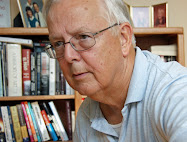 |
| President John F. Kennedy |
So November 22, 1963 was the first major trauma that occurred in my lifetime and burned into my consciousness. I'd been a student at Boston University, waiting for an economics class to start when a student ran in with the news and turned on a transistor radio. At that point we didn't know the President's condition, just that he had been gravely wounded and rushed to Parkland Hospital in Dallas. Then the instructor entered. She had heard the news but grimly said our class would go on as usual. I absorbed nothing from the class that day as I sat in a daze, wondering what it all meant. And then the capture of Lee Harvey Oswald and his murder that weekend added to my feeling that the country had slipped into chaos. The rest of the decade brought us the Vietnam War, political murders, riots in Detroit, Chicago, Los Angeles, New Jersey, New York, Washington, D.C.--and other places in the U.S.
The United States has never been an idyllic society, as blacks know better than most people. The struggle for racial equality had gone on for decades before the '60s. But for many of us, there had been a veneer of stability and order--perhaps illusion is the better word. We since have glorified President Kennedy, learned of and largely forgiven his faults. Would he have been as revered had he lived? No one knows. We do know that Oswald's bullets not only killed a man; they blasted our country out of the complacent 1950s and into a decade of anger and fear.
















